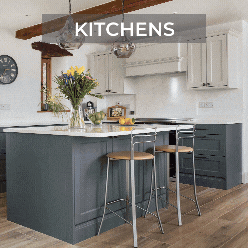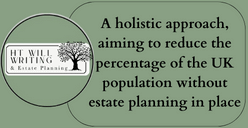In case you missed it see what’s in this section
Let's Talk
Factors Landlords Must Consider When Investing in a Property
How do you choose the right property? When it comes to selecting somewhere to live, this becomes a little more straightforward. In this instance it’s about picking a home – somewhere that emotionally feels ‘right’ for you as well as practically delivering the space you need in the location that suits your work and family life.
When it comes to selecting a property for investment, however, things are different. You can’t afford to weigh up the merits of an individual property based on whether you’d like to live there - because you won’t be. Instead, you need to look at a few key factors…
Budget
Property might well be a smart investment choice but it isn’t cheap. Recent increases in stamp duty and changes to the rules surrounding tax relief mean that things are now a little tougher for buy-to-let landlords. That shouldn’t necessarily put you off but it does mean that, before anything else, you need to have done your sums and done them well. No matter how good a property is, if it’s out of the reach of your finances then it’s not the right choice.
Location
It’s important to remember that you are investing in a location as much as you are a physical property. The reputation of the neighbourhood, parking, quality of the local schools, transport links and proximity to shops and pubs are all things that can help to make a property a good investment that are little to do with room dimensions. Clearly this is important too – but the location needs to be taken into account.
Yield
It’s important to make as much money as you can for your property, but that doesn’t necessarily mean picking somewhere where the rent is highest. The way to assess the merits of a property from a financial perspective is to look at the yield. This is a figure that measures the amount of rent that can be earned in a year, stated as a percentage of the price of the house. So an annual income of £11,000 on a £200,000 houses is a yield of 5.5%, but £10,000 on a £175,000 is 5.7%. The latter, therefore, gives a better pound-for-pound return.
This figure often goes hand in hand with location, and areas where there is a strong demand for rental accommodation – perhaps through a shortage of properties or a particularly high demand from a university, say - can attract the biggest yield. This list from the Telegraph notes some places where the yield is highest in the UK.
Future sales value
If your circumstances change then you’ll want to cash in on your property asset. However, that means being careful about purchasing a property that could fall in value and understanding negative equity and the dangers this poses. No-one can know for sure what will happen to the price of a property – but by looking at the state of the market in an area you can see what the current trend is. Properties that need a little work might be a good bet – especially if you can get them back into shape for a relatively small cost and quickly increase the value.
Weather in Bath
Listings



















